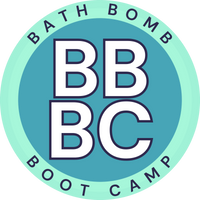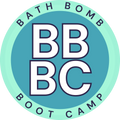Vegan Soap
Veganism is not only a diet, but also a lifestyle. Those who identify as vegan not only refrain from eating animals and animal by-products but also from using anything animal-derived, like leather, silk, and conventional soap.
You may have paused on the last one, but traditional soap and many homemade soap recipes use animal fat and lye to produce soap bars. Most people don’t realize that conventional soaps are not only using harsh chemicals and fragrance oils, but also contain animal fats.
This is the oldest method of making soap but it is not the only one. With recent advances, it has become possible to make 100% vegan, cruelty-free soap that contains no animal-derived products.
Fat is a necessary component of soap. For a very, very simplified version of the chemical process of soap making, we offer this explanation: soap is a combination of lye and fat that produces a chemical reaction. The lye (also known as sodium hydroxide) is a base while the fatty acids in the oils and butters are the acids. Once the liquid lye is mixed with the oils, their molecules combine and a chemical reaction called saponification occurs. From this reaction you get—soap!
Now don’t worry, while lye is a very dangerous chemical, the saponification process changes the lye into soap and glycerin, a wonderful and moisturizing emollient that is very beneficial to skin.
To make vegan soap, animal fats are replaced with vegetable based oils. This can range from olive oil, coconut oil or palm oil. These fatty acids react just as well with the base solution and will make a very satisfactory soap.
Many common vegan soaps are produced from olive oil. This includes Castile soap, Aleppo soap, Marseille soap and Nabulsi soap.
Handmade vegan soap is also very popular and easy to find. Not to mention, many people that hand make soap to sell are always happy to take on new projects or custom orders.
Some commercial soaps can also qualify as vegan, since they are made from detergents and chemicals and do not use any animal-derived ingredients, but they can also be significantly worse for your skin.
How To Make Money Selling Handmade Soap
The first thing to do is to assess your initial cost and local laws. Soaps can sometimes be classified as a cosmetic or as a drug depending on your location and laws surrounding the making and selling of these products can be prohibitive.
As for what you will need to make soap, many of the utensils used to make soap are things you will already have in your kitchen. This includes crockpots, glass bowls and baking sheets, which are all used in making soap. Beyond that, we recommend setting aside $200 to $500 to set up your soap making business, this includes supplies, advertising and equipment.
Now that you’ve considered how much it will cost to get started you can look into how much you can make. Doing some research at local farmers’ markets or on Etsy will give you a good sense of what you can charge for a bar of handmade soap. Keep in mind that the prices on Etsy can range from a few cents to thousands of dollars (yep, you heard us), so try to stay within averages, which is about $3 or $4 per bar.
Unfortunately, as enjoyable as hand making your own soap can be, it can be very difficult to make it your full-time job. Consider that even if you sell 50 bars of soap a week at $4 each, you will still only be making a hair over $10,000 every year, and that’s without the cost of supplies and packaging.
But don’t let that discourage you! Just because you won’t get rich making your own soap, it is still a great way to make some extra cash doing something you enjoy and that will benefit your whole family. Look at hand making soap as a way to keep your family’s skin away from chemicals, as ready made gifts with a bit of extra love and as a means to make some disposable income to spend on vacations or presents for yourself or your loves ones.

